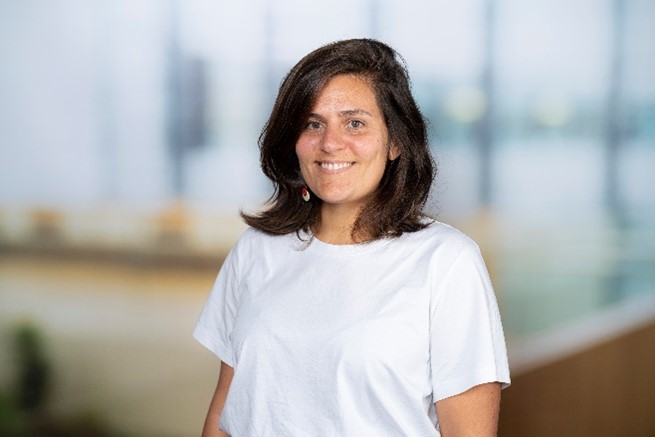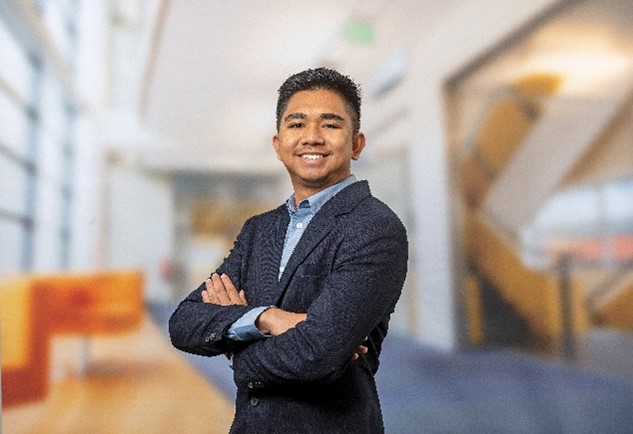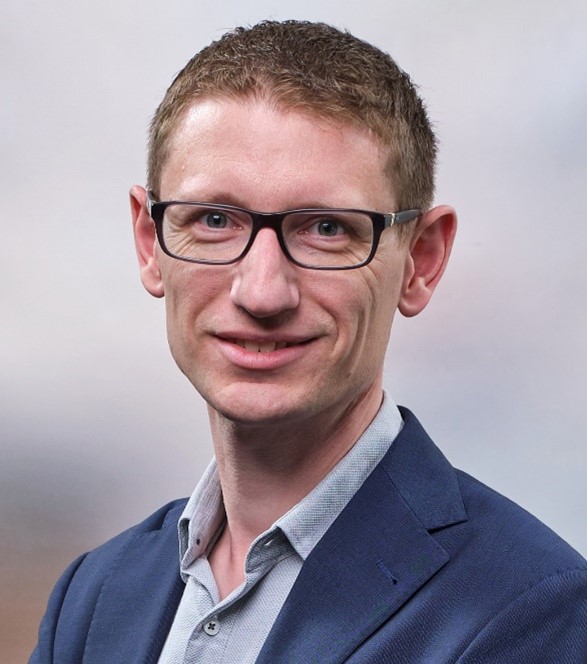Parents and caregivers: an interview with two PhD candidates
Family caregiving is part of the fabric of life. Many scientists (m/f) have children or are starting a family at the same time as maintaining and building a career. Juggling teaching, publishing, finding a new (or permanent) job, relocating, attending conferences, and actually doing research sometimes requires more hours in the day than exist. So, how do colleagues combine this with parenting? What challenges do parents face in the different job levels? Where do they find support? And what can the organisation do to create a more inclusive working environment where parents can grow and flourish in their careers?
DEWIS is talking with scientists (m/f) with caregiving responsibilities, and we aim to start a dialogue around how we can make changes within the TU Delft to support those scientists who are also parents.
Antragama Abbas is a PhD researcher at the faculty of TPM and has a new-born son of four months old. Raquel Hädrich Silva is from Brazil and is a PhD researcher at the faculty of Arch+BE and has a 2-year-old boy.


Can you describe your situation?
Antra: “Our son was too young for day-care when circumstances required my wife to return to work earlier than we expected. So, we took turns caring for our baby, just the two of us, without any family support. It was tough, with me trying to complete my dissertation and preparing my career’s next steps. However, the support and confidence given by my understanding supervisors helped immensely. Now, I can say that those challenges make me stronger. I am grateful for the journey, and things have started to improve. We are doing well!”
Raquel: “Yes, the first months are challenging. It does make an enormous difference that my son is going to day-care now. I am happy to say that my partner and I divide the caregiving responsibilities in a very flexible way. We are both actively engaged. If I need to work longer, my partner picks him up and gives him diner.
I feel more rooted here in Holland since my son is born. I feel less homesick, and I have more work-life balance. My life is not only about doing my PhD. When I come home, I play with him. This gives me energy which in turn has positive influence on my work.”
Did you have any doubts to start a family during this phase of your career?
Antra: “In life, perfect timing for major events like starting a family is elusive. If we overthink it, we might end up missing the beautiful experiences that parenthood brings. So, despite the critical phase of my career, I embraced the journey without having any regrets.’
Raquel: “I wanted to become a mother, and this was the right moment: during my PhD. I saw the women around me in academia and it was not getting any easier for them to have a baby later in their career journey. As a PhD, I have less responsibilities. Once the baby was born, I could come back and start where I left off with my research.”
What challenges do you face in this phase of you PhD?
Antra: “My biggest challenge was the absence of a fixed work structure. The initial months were particularly challenging - I was tired, could not focus, and felt a decline in my productivity, which led to a lot of stress and uncertainty about my work. Again, if it were not for my understanding and supportive supervisors, I cannot even begin to imagine how difficult it would have been.”
Raquel: “It is shocking to me that people expect you to come back after three months of maternity leave or a few weeks of parental leave and work full for 100%. I can relate to what Antra shared. Starting work after maternity leave felt overwhelming. It was an uncertain period where both my body and mind were adjusting to the new situation. My supervisor supported me greatly: I could negotiate how I would work during the first year. It was nice to have that respect from her.”
Where did you go for support?
Antra: “My supervisors were a pillar of support during this period, helping me not just by understanding my situation but also by assisting in re-adjusting my work rhythms and deadlines. In parallel, the secretarial team was helpful, providing essential information such as details on available leave options. The support from my fellow Indonesian community in Delft also played an essential role in my journey. This combined support significantly eased my journey during this challenging period.”
Raquel: “It really helps to talk to people. Because you might think: ‘I am not capable; I cannot do this; Academia is not for me.’ But as soon as you talk to other people you will find this is about the phase you are in. Having the right support during this phase can make an immense difference in regaining your rhythm. I learnt to work more efficiently, for example.”
What can a supervisor do to support (future and current) parents?
Mark: “My first goal is to help the parent to enjoy this new phase in life. What’s needed for that depends on the situation, so it’s important to discuss that openly. Offer your support, be kind and flexible. Often, PhD students worry about their planning. Here, I try to help by being realistic and pragmatic. It’s no use to stick to an unfeasible planning and add more pressure. But it’s also not good to postpone tasks in ways that create problems later. All about balancing here!”
What advice would you give to (future and current) parents?
Mark: “You will be overwhelmed. Give it time and embrace the changes. You will find a new balance.
Prioritize your family. Find the time to be with your newborn and support your partner. Most academics love their job and are thinking about it all the time. So, with this, I also mean that you should find the mental space to really be with them. This is a period that doesn’t come back. Anything you invest now in creating a basis for your family, will pay off massively in the future.
And finally: discuss it with your supervisor. Be open and ask for the support you need. It’s special becoming a parent, but also common. So in case of doubt, do speak up and ask support.”
What can the organisation do more to support parents?
Antra: “From my experience, a more proactive approach from the organization towards new parents could be beneficial. After a child arrives, it can be overwhelming, and it is often challenging to actively seek out necessary information. I believe it would be immensely helpful to have a structured support system in place, something like a formalized one-hour meeting or even a home visit, similar to what the midwife or consultatiebureau does. During this meeting, new parents could be guided on what to anticipate in their professional lives during this transformative period.”
Raquel: ‘I totally agree. I feel this university is not prepared for mothers who want an academic career. And this is not only my experience. Many others share my feeling. For example, we should not normalize the separation of babies from their mothers. University has pumping rooms, mostly underground or in the back of the faculty somewhere. However, we do not have open welcoming spaces where mothers can breastfeed or where small children can come to work if necessary. Work and family are very separated in university culture and in the Netherlands in general. My mum, who is from Brazil, breastfed her baby at work. It was a celebration!’
